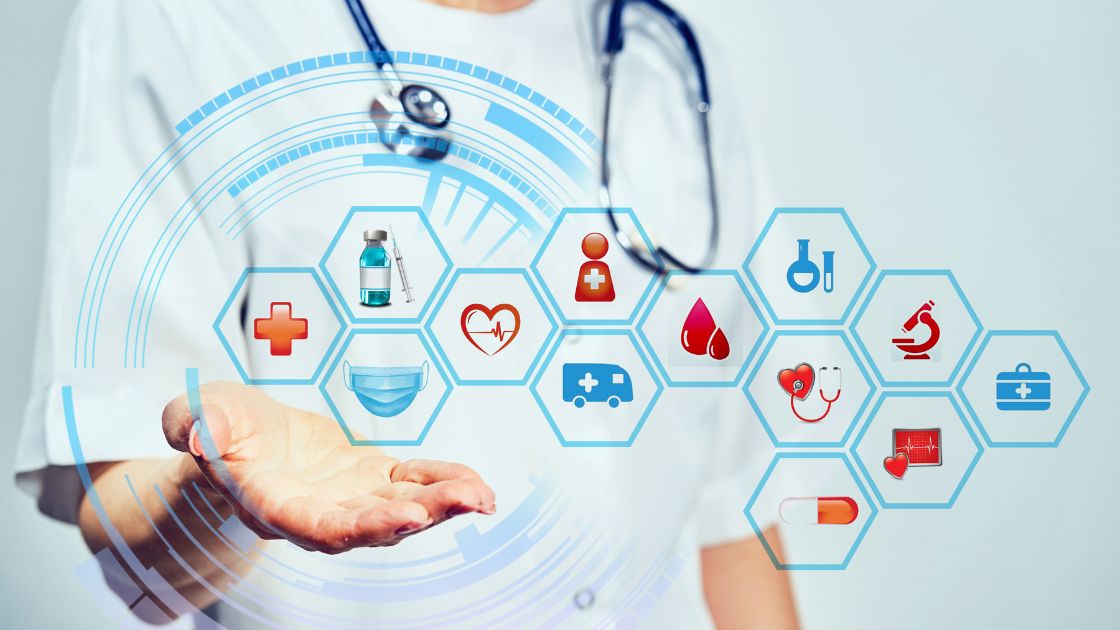The healthcare industry is undergoing a rapid digital transformation, underscored by the integration of technology in healthcare MBA programs into the educational landscape. From electronic health records (EHRs) to telemedicine and artificial intelligence (AI), technology is revolutionizing how healthcare is delivered and managed.
This digital evolution is creating a pressing need for healthcare leaders and managers who understand these technologies and can leverage them to enhance patient care. As a result, top MBA programs are incorporating healthcare tech management and systems into their curriculums to equip graduates for leadership roles in this digital era.
This blog post will provide an overview of key technology in healthcare MBA and discuss how they are being integrated into MBA programs specializing in healthcare management.
Key Technologies Transforming Healthcare
Several cutting-edge technologies are driving innovation in healthcare management today. Some major examples include:
- Electronic Health Records (EHRs): EHRs digitize patient health information, including medical history, examination results, medications, immunizations, and more. They facilitate secure storage, retrieval, and sharing of patient data across healthcare settings.
- Telemedicine: Telemedicine uses communication technologies like video conferencing to provide health services remotely. It expands access to care while reducing costs.
- mHealth: mHealth refers to mobile health solutions like wearables and health apps that collect and analyze patient data via smartphones or tablets. It promotes patient engagement.
- Artificial Intelligence: AI technologies use algorithms and machine learning to automate complex tasks. Applied to healthcare, AI powers solutions ranging from predictive analytics to precision medicine.
Integrating Health IT into MBA Programs
For aspiring healthcare managers, understanding these technologies is not just optional but imperative. As a result, graduate healthcare management programs, particularly those under the umbrella of MBA Digital Health, are incorporating health IT into their curriculums. These programs are even offering specialized healthcare IT/systems management tracks, focusing on the following topics:
- Digital Health Strategy: How to align technology investments with organizational goals while accounting for risks/limitations.
- Health Data Analytics: Using analytical methods and AI to derive insights from patient data.
- Healthcare Information Systems: EHR systems, data interoperability, system implementation, privacy/security protocols.
- Health IT Project Management: Budgeting, vendor selection, systems integration, rollout, adoption measurement.
- mHealth and Telemedicine Solutions: Mobile health and virtual care tools, regulations, patient engagement strategies.
Beyond domain knowledge, technology in healthcare MBA programs aims to develop the leadership abilities to leverage technology to enhance clinical outcomes, patient experience, cost savings, and more.
Innovations in Healthcare Management Education

Healthcare management demands a specialized skillset combining business acumen with patient-centred clinical knowledge. To develop these multifaceted leaders, MBA programs are innovating through initiatives like:
- Online/Hybrid Delivery: Blended online and in-person learning using virtual simulations and telepresence robots expanding access.
- Interprofessional Training: Partnering management students with medical/nursing students, facilitating collaboration.
- Healthcare IT Certifications: Integrating clinical health IT certifications into curriculums.
- Hands-on Capstones: Student teams undertaking real-world digital health strategy projects at partner organizations.
- Executive Education: Targeted programs helping existing healthcare leaders gain health IT/management skills.
This value-based, technology-enabled education equips graduates to thrive in healthcare’s digital future, with a strong emphasis on tech innovations in healthcare.
The Role of Analytics and Data Science
Data analytics and data science are playing an increasingly critical role in healthcare management, especially as technology continues to generate huge amounts of health data. Reflecting this trend, technology in healthcare MBA should cover how analytics can be used to drive better decision-making in areas like:
- Population Health Management: Analyzing patient data to identify risks and opportunities to improve health outcomes across different demographics.
- Clinical Operations: Leveraging data to identify efficiencies and process improvements in clinical workflows.
- Financial Performance: Mining billing, cost and revenue data to identify opportunities to reduce costs and improve the bottom line.
- Patient Experience: Applying text analytics and sentiment analysis to patient feedback data from surveys and online reviews to understand and enhance patient satisfaction.
Conclusion
For aspiring healthcare managers, the message is clear – graduate education, especially through programs like technology in healthcare MBA, must integrate healthcare information systems and health technology management to equip graduates with the insight needed to navigate this transformation.
MBA programs specializing in healthcare management are rising to this challenge by incorporating hands-on health IT training. With innovative experiential learning models, they aim to develop the tech-savvy, transformation-ready healthcare leaders needed to shepherd the industry into the future.






